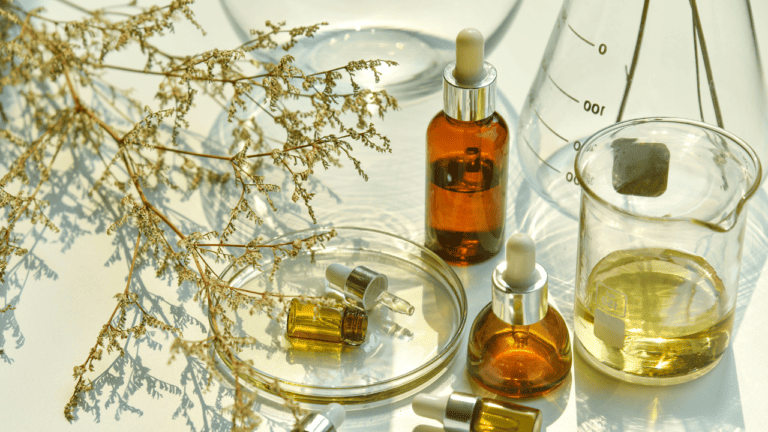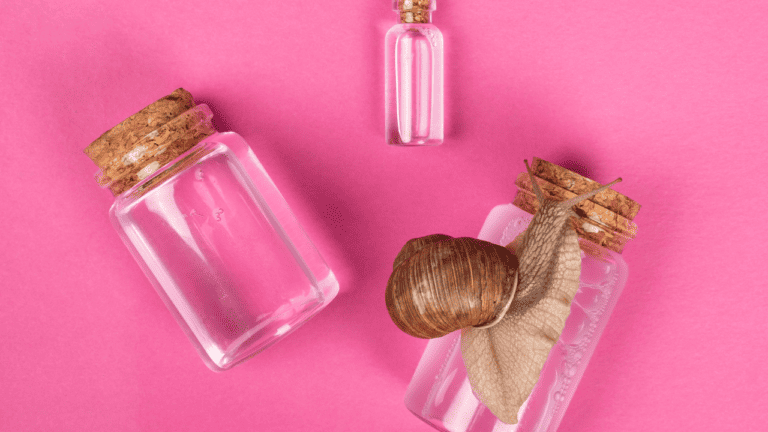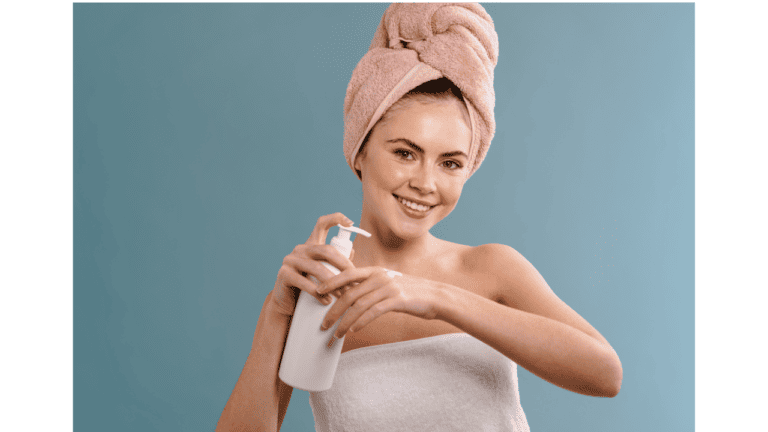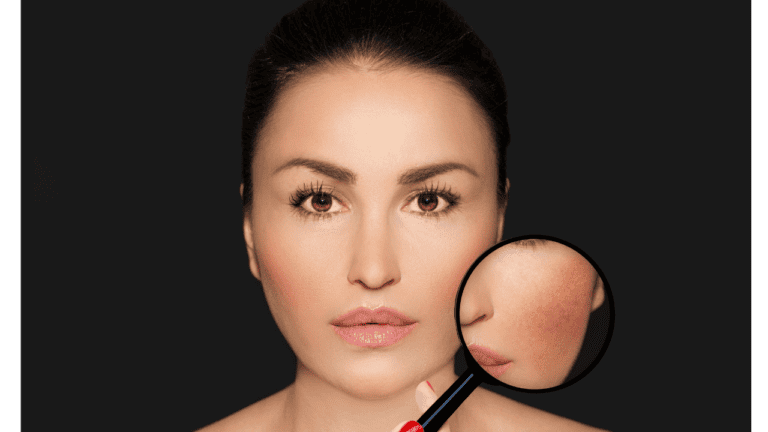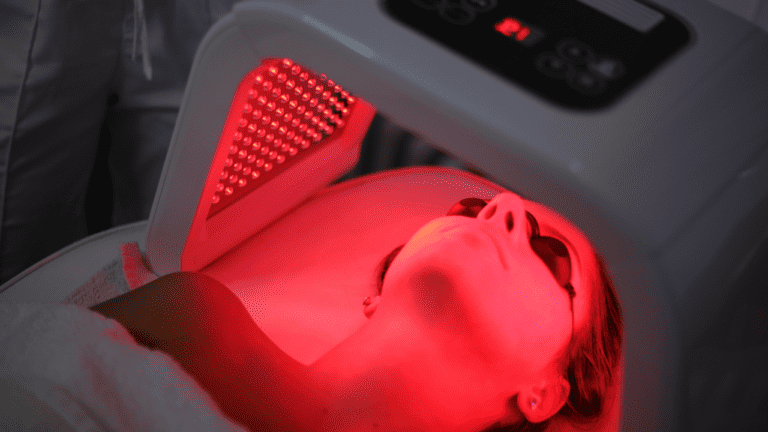We all age, and it’s inevitable that our skin undergoes various changes. As skin elasticity and collagen production slows down, we find that fine lines and wrinkles become more prominent and it is quite common to start wondering if it’s too late to start a skincare routine in their 30s. Simply put, no, it’s never too late to start taking care of your skin! Let’s talk about why and understand how you should get started.

Understanding Skin Changes After 30
After the age of 30, the skin’s natural renewal process slows down, leading to dull, dry, and uneven skin. Collagen production decreases, leading to sagging skin and wrinkles. Additionally, the skin’s ability to retain moisture also decreases, leading to dryness and flakiness. However, with a proper skincare routine, these changes can be minimized, and the skin can look healthy and radiant.
Essential Skincare Products for Mature Skin
A good skincare routine for mature skin should include products that hydrate, nourish, and protect the skin. Cleansers, moisturizers, and sunscreens are essential for healthy skin. Serums and eye creams can also help to address specific concerns such as fine lines, wrinkles, and dark circles. It’s important to choose products that are specifically formulated for mature skin and to avoid harsh ingredients that can further damage the skin.
Key Takeaways
- It’s never too late to start a skincare routine, even after the age of 30.
- As people age, their skin undergoes various changes such as decreased collagen production and decreased ability to retain moisture.
- A good skincare routine for mature skin should include products that hydrate, nourish, and protect the skin, and avoid harsh ingredients.
Understanding Skin Changes After 30

As we age, we start to notice that our skin changes, perhaps it doesn’t bounce back like it used to and there are many factors that contribute to this. Such as genetics, lifestyle and environmental factors. Understanding these changes can help individuals take steps to care for their skin and maintain its health and appearance.
Collagen and Elastin Decline
Collagen and elastin are two proteins that are important for maintaining the structure and elasticity of the skin. As people age, their bodies produce less collagen and elastin, which can lead to wrinkles, sagging skin, and other signs of aging. This decline in collagen and elastin production is a natural part of the aging process, but it can be accelerated by factors such as sun exposure, smoking, and poor nutrition.
To help maintain collagen and elastin levels in the skin, individuals can take steps such as using sunscreen, quitting smoking, and eating a healthy diet rich in vitamins and minerals that support skin health.
Hormonal Changes and Skin
Hormonal changes can also have an impact on the skin as people age. In women, a decline in estrogen levels during menopause can lead to a loss of skin elasticity and moisture, as well as a decrease in collagen production. Men also experience hormonal changes as they age, which can lead to thinning skin and a decrease in collagen production.
To help maintain skin health during hormonal changes, individuals can take steps such as using moisturizers, drinking plenty of water, and eating a healthy diet rich in nutrients that support skin health.
Sun Damage and Aging
Sun damage is a major contributor to skin aging, and it can have a significant impact on the skin’s health and appearance. Exposure to UV radiation from the sun can lead to wrinkles, age spots, and other signs of aging, as well as an increased risk of skin cancer.
To help protect the skin from sun damage, individuals can take steps such as using sunscreen, wearing protective clothing, and avoiding prolonged exposure to the sun during peak hours. Regular skin exams are also important for detecting and treating skin cancer early.
Essential Skincare Products for Mature Skin

Taking care of your skin is important at any age, but it becomes even more crucial as you get older. As skin ages, it becomes thinner, drier, and less elastic, leading to wrinkles, fine lines, and age spots. However, it’s never too late to start a skincare routine that can help improve the appearance of your skin and slow down the aging process. In this section, we will discuss some essential skincare products for mature skin.
Cleansers and Exfoliators
Cleansing your skin is the first step in any skincare routine. It helps to remove dirt, oil, and makeup, which can clog pores and lead to breakouts. For mature skin, it’s important to choose a gentle cleanser that won’t strip the skin of its natural oils. Look for products that contain hydrating ingredients such as hyaluronic acid or glycerin.
Exfoliating your skin once or twice a week can also help to remove dead skin cells and promote cell turnover, which can help to reduce the appearance of fine lines and wrinkles. However, it’s important to choose an exfoliating cleanser that is gentle and won’t irritate the skin. Look for products that contain alpha-hydroxy acids (AHAs) such as glycolic acid, which can help to brighten and smooth the skin.
Serums and Moisturizers
Serums and moisturizers are essential for keeping mature skin hydrated and nourished. Look for products that contain antioxidants such as vitamin C, which can help to protect the skin from environmental damage. Retinol is also a popular ingredient in anti-aging skincare products, as it can help to reduce the appearance of fine lines and wrinkles.
Hyaluronic acid is another ingredient to look for in moisturizers and serums, as it can help to plump up the skin and reduce the appearance of fine lines. It works by attracting moisture to the skin, which can help to keep it hydrated and supple.
Targeted Treatments
In addition to cleansers, exfoliators, serums, and moisturizers, there are also targeted treatments that can help to address specific skin concerns. For example, if you have age spots or hyperpigmentation, look for products that contain ingredients such as vitamin C or hydroquinone, which can help to brighten and even out the skin tone.
If you’re concerned about sun damage, make sure to use a sunscreen with an SPF of at least 30 every day. Look for products that are labeled “broad-spectrum,” which means they protect against both UVA and UVB rays.
In conclusion, taking care of your skin is important at any age, but it becomes even more crucial as you get older. By incorporating essential skincare products such as cleansers, exfoliators, serums, moisturizers, and targeted treatments into your routine, you can help to improve the appearance of your skin and slow down the aging process.
Lifestyle Adjustments for Enhanced Skin Health

Taking care of your skin is important at any age, but it becomes even more crucial as you get older. While it’s never too late to start a skincare routine, there are certain lifestyle adjustments that can enhance skin health, especially after the age of 30.
Diet and Hydration
A healthy diet and proper hydration are essential for maintaining healthy skin. Eating a diet rich in fruits, vegetables, and healthy fats can provide the body with the nutrients it needs to produce healthy skin cells. Foods high in sugar and unhealthy fats, on the other hand, can contribute to skin damage and aging.
Drinking plenty of water is also important for keeping skin hydrated and healthy. Dehydration can lead to dry, flaky skin, and even contribute to the formation of wrinkles. Aim to drink at least 8 glasses of water a day, and more if you’re active or live in a dry climate.
Sleep and Stress Management
Getting enough sleep and managing stress levels are also important for maintaining healthy skin. Lack of sleep can lead to dark circles, puffiness, and even breakouts. Stress, on the other hand, can cause inflammation in the body, which can lead to skin damage and aging.
To promote healthy skin, aim to get at least 7-8 hours of sleep each night and find ways to manage stress, such as meditation or exercise.
Sun Protection and Avoidance
Protecting your skin from the sun is one of the most important things you can do to maintain healthy skin. Exposure to UV rays can cause skin damage, wrinkles, and even skin cancer. To protect your skin, use a broad-spectrum sunscreen with an SPF of at least 30 every day, even on cloudy days.
In addition to sunscreen, it’s important to avoid the sun during peak hours, typically between 10 a.m. and 4 p.m. If you must be outside during these hours, wear protective clothing, such as a hat and long-sleeved shirt, and seek shade whenever possible.
By making these lifestyle adjustments, you can enhance skin health and maintain a youthful appearance, even after the age of 30.
Professional Skincare Treatments
As people age, their skin starts to lose collagen and elastin, leading to wrinkles, fine lines, and sagging skin. While it is never too late to start a skincare routine, some people may want to consider professional skincare treatments to achieve more noticeable results.
Dermatological Procedures
Dermatologists are medical doctors who specialize in treating conditions related to the skin. They can perform a variety of procedures to help improve the appearance of aging skin, such as chemical peels, laser resurfacing, and microneedling. These treatments can help reduce the appearance of fine lines, wrinkles, and age spots, and can also help improve skin texture and tone.
Chemical peels involve applying a chemical solution to the skin, which causes the top layer of skin to peel off, revealing smoother, more youthful-looking skin underneath. Laser resurfacing uses a laser to remove the top layer of skin, stimulating the growth of new skin cells and collagen. Microneedling involves using a device with tiny needles to create micro-injuries in the skin, which stimulates the production of collagen and elastin.
Non-Invasive Skin Rejuvenation
For those who want to avoid more invasive procedures, there are many non-invasive skin rejuvenation treatments available. These treatments typically involve using light or heat to stimulate collagen production, which can help reduce the appearance of fine lines and wrinkles.
Intense pulsed light (IPL) therapy uses pulses of light to target pigmented areas of the skin, such as age spots and sun damage. IPL can also help improve skin texture and tone. Radiofrequency (RF) therapy uses heat to stimulate collagen production, which can help reduce the appearance of fine lines and wrinkles. RF therapy can also help tighten sagging skin.
Overall, professional skincare treatments can be a great option for those who want more noticeable results than what can be achieved with at-home skincare products. It is important to consult with a dermatologist to determine the best treatment options for your skin type and concerns. It is also important to maintain a healthy skin barrier by using gentle, non-irritating skincare products and avoiding harsh chemicals and fragrances.
Frequently Asked Questions
What are the best anti-aging skin care products for someone in their 50s?
When it comes to anti-aging skin care products, there are a lot of options on the market. However, it’s important to choose products that are specifically formulated for your skin type and concerns. For someone in their 50s, it’s important to look for products that contain ingredients like retinol, vitamin C, and hyaluronic acid. These ingredients can help to reduce the appearance of fine lines and wrinkles, improve skin texture and tone, and boost hydration levels. It’s also important to use a broad-spectrum sunscreen with an SPF of at least 30 every day to protect your skin from further damage.
How should I adapt my skin care routine if I have sensitive skin in my 30s?
If you have sensitive skin, it’s important to choose gentle, fragrance-free products that won’t irritate your skin. Look for products that are specifically formulated for sensitive skin and avoid harsh ingredients like alcohol, fragrance, and sulfates. It’s also important to patch test new products before using them all over your face to ensure that they won’t cause a reaction. In your 30s, it’s important to focus on hydrating and protecting your skin. Look for products that contain gentle exfoliants like lactic acid or glycolic acid to help remove dead skin cells and improve skin texture. You should also use a moisturizer with ceramides to help strengthen your skin’s natural barrier.
Can you recommend a budget-friendly skin care routine for someone in their 30s?
If you’re on a budget, it’s still possible to take good care of your skin. Look for affordable drugstore brands that offer quality products. In the morning, start with a gentle cleanser to remove any dirt and oil that may have accumulated overnight. Follow up with a moisturizer that contains SPF to protect your skin from sun damage. At night, use a gentle cleanser to remove any makeup and dirt from the day. Follow up with a moisturizer that contains retinol to help improve skin texture and reduce the appearance of fine lines and wrinkles. You can also use a facial oil to help boost hydration levels. Look for products that contain natural ingredients like jojoba oil or rosehip oil.

